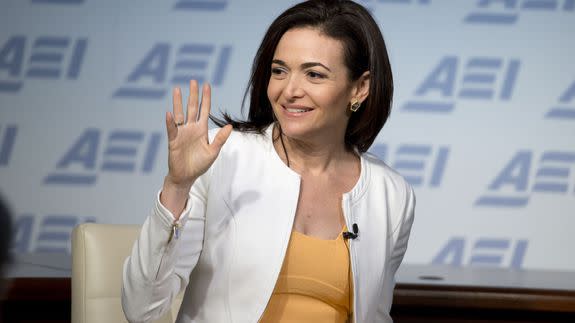Facebook is really, seriously working on its fake news problem, Sheryl Sandberg says

Facebook can't escape criticism about its role in distributing "fake news." Confronted with what you might call a gentle probing on The Today Show on Thursday, a top exec said the company is "working on it."
"We've been working on this for a long time, and we've taken important steps, but there's a lot more to do," Sheryl Sandberg, Facebook's chief operating officer, told Today anchor Savannah Guthrie. "We're working on it, because misinformation is something we take seriously and something we're going to continue iterating on the surface."
SEE ALSO: Facebook pledges to clear News Feed of misinformation, again
But Sandberg maintains the party line that her product, a social network with 1.79 billion monthly users and a major destination for media consumption, couldn't have influenced the presidential election.
"There have been claims that it swayed the election, and we don't think it swayed the election, but we take that responsibility really seriously," Sandberg said.
Here we go again
When Sandberg says Facebook has been working on the spread of hoaxes "for a long time," she means it. The social network has released public statements about misleading information dating back to at least August 2014.
Any "important steps" Facebook has taken in the past didn't stop the viral spread of totally fake news this election season. An analysis from BuzzFeed News found that "hyperpartisan," Trump-supporting fake news was shared at a considerably higher rate than left-leaning hoaxes.
Just one fake news article can be shared to millions of people, Mashable found, to say nothing of the potential impact of many articles distributed by several different outlets.
Sure, we can't say that fake news certainly influenced voter behavior. But we do know that it's enough to motivate violence.
Four days ago, a self-styled vigilante opened fire in a pizzeria. He had heard about the "#Pizzagate" conspiracy theory and believed the restaurant was harboring a child sex ring connected to Hillary Clinton. That "theory" was widely shared by fringe groups online, including on Facebook.
For its part, the social network is apparently asking users to assess whether headlines are misleading. And the company is said to be working on a product called "Facebook Collections," which would curate articles from news media — essentially vetting them in the process.

 Yahoo News
Yahoo News 